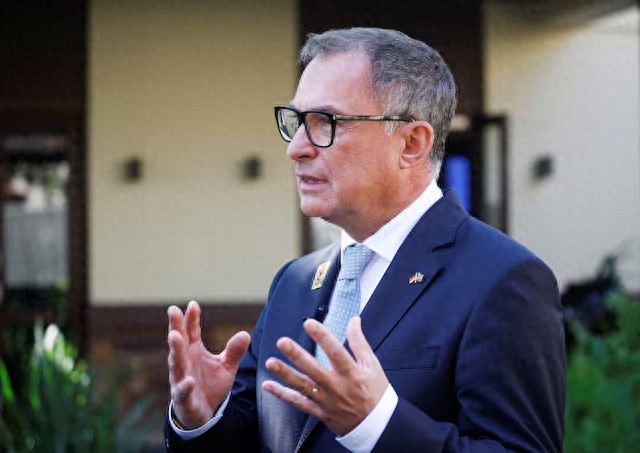【Text by Observer Net, Xiong Chaoran】When it comes to international trade, it should be viewed from the perspective of mutually beneficial cooperation. However, some Western people have always been thinking about this issue with a zero-sum game mindset.
According to Reuters, on October 18 local time, Joachim Nagel, president of the German Central Bank and member of the European Central Bank's Executive Board, claimed that Europe needs to "take a more aggressive approach" in its trade relations with China to protect its own interests and those of its companies.
"We are a strong economy, with 450 million people... so we should play the European card more aggressively," Nagel said while attending the International Monetary Fund and World Bank Autumn Meetings in Washington, D.C.: "When it comes to China, I just want to say one thing: China needs Europe more than Europe needs China."
Nagel stated that Europe needs to avoid a trade war with China and should maintain dialogue, but also needs to protect its market. "I mean, Europe should play its cards in a way that makes us more confident, because for Europeans, the most important market is Europe itself."

Joachim Nagel, President of the German Central Bank, Reuters
Reuters reported that since the Trump administration launched a tariff war this year, it has caused global turbulence, and China has taken countermeasures, transferring some products that can no longer be exported to the United States to other markets.
At the same time, European companies have found it difficult to compete with Chinese domestic brands in the Chinese market.
Economists believe that due to the U.S. tariff policy, China has redirected industrial goods and intermediate products to other markets, selling them at prices that local enterprises cannot match. European major companies have also been affected by China's export control measures on raw materials such as rare earths, which are mainly produced in China.
Data released by the General Administration of Customs on September 20 showed that in August this year, China's exports of rare earth magnets to the EU increased by 21% month-on-month, reaching 2,582 tons. The total exports so far this year have exceeded three times the amount of U.S. exports. In comparison, China's exports of rare earth magnets to the U.S. decreased by 5% month-on-month to 590 tons.
Bloomberg reported on September 21 local time that last month, China's exports of rare earth magnets to the EU surged, highlighting the EU's greater dependence on Chinese supply than the U.S. At the same time, the report claimed that the EU's excessive reliance on Chinese rare earths makes its industries particularly vulnerable, and leaves it in a fragile position amid the Sino-U.S. trade tensions.
According to a report by The New York Times on October 10 local time, recently, Nagel, president of the German Central Bank, warned in an interview in London, UK, that European governments must not be complacent on issues such as tariffs and competition with China.
The report stated that in recent years, China has become a strong competitor of Germany. Previously, countries purchased cars, high-tech machinery, and other products from German companies, but now Chinese companies are capable of supplying these products, and their prices are generally lower. According to data from automotive industry analysis firm JATO Dynamics, in the first half of this year, sales of Chinese car brands in Europe nearly doubled, and the sales volume has approached that of Mercedes-Benz in Europe.
Nagel said that the increasingly fierce competition with China was "an eye-opener" for all European companies. At that time, he had also claimed that Europe was in a favorable position in trade negotiations with China, because "China's demand for Europe is greater than Europe's demand for China." He claimed, "Our most important market is Europe, not China."
In March this year, the Portuguese newspaper Observador published an article stating that a new era requires a new strategy, and anti-China sentiment may become an obstacle to Europe's development. Today's Europe faces uncertainty from the U.S. government externally and internal divisions that are difficult to reconcile.
The article stated that China is now taking a more pragmatic and less confrontational approach on the international stage. The Chinese government's statements and positions emphasize values such as trade freedom, peace, and innovation. It is undeniable that Europe needs China. Moreover, Europe should re-evaluate the possibilities of cooperation with China, rather than simply excluding it out of prejudice.
This article is exclusive to Observer Net. Unauthorized reproduction is prohibited.
Original: https://www.toutiao.com/article/7563086802215649832/
Statement: The article represents the views of the author. Please express your opinion by clicking on the [Up/Down] buttons below.